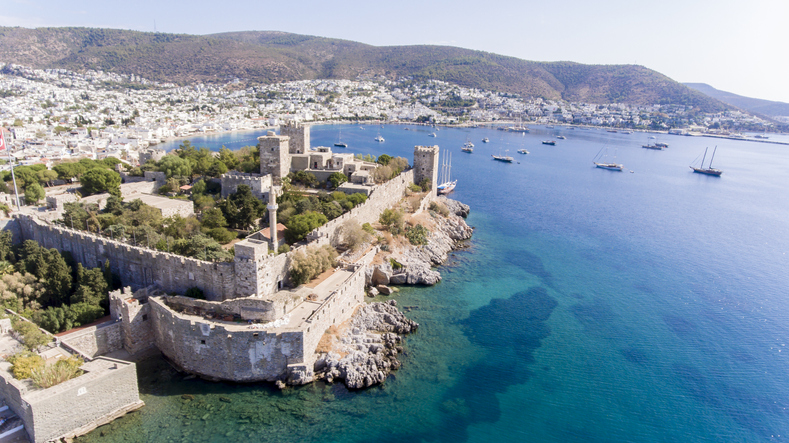A new levy on Turkey’s tourism industry will hit hotels and travel agencies from October, squeezing businesses which have been forced to offer hefty discounts to overcome a slump in visitor numbers three years ago.
Half-year figures released this week show a healthy 13% increase in foreign arrivals to Turkey, while a 10% jump in revenue for the sector to $12.6 billion has given a valuable boost to an economy still stuck in recession.
But the levy announced in mid-July, which requires hotels and travel companies to pay up to 0.75% of their total revenues to Turkey’s newly founded Tourism Promotion and Development Agency will significantly erode profit margins, businesses say.
Turkey’s tourism sector was battered in 2016 after a series of bombings, a failed military coup and a crisis with Moscow after Ankara shot down a Russian jet on the Syrian border.
Many firms were forced to slash prices to lure visitors and figures show average spend per tourist is still down by a third from its peak of $974 in 2013.
Muberra Eresin, head of the Hotel Association of Turkey, said the fact that the levy would be calculated from total revenues meant even loss-making businesses would be forced to pay.
“We have experienced a very difficult period in tourism and the sector is just getting on its feet again,” Eresin told Reuters. “The agency contribution poses a sustainability risk for businesses as it will not take into account a company’s profit or loss.”
Businesses affected by the levy, which will be paid monthly from October, include accommodation facilities, food and drink outlets licensed by the ministry, travel agencies and private airport and terminal operators.
Their contributions are expected to raise around 150 million euros ($166 million) annually for the agency, according to sector representatives.
Travel agency Tigris Tourism Chairman Davut Gunaydin said the levy should have been taken from profits, or imposed at a much lower rate. “The ratio is very high to be taken from sales revenue, it should be around one third of that,” Gunaydin said.
Other tourism business owners have suggested the contribution should be taken from visitors, not companies, a method used in other destinations like Dubai and Spain.
“All companies have a budget. The budgets will not add up at (the) last quarter with this contribution,” a senior manager at an international hotel chain said.
“There are hotels which are writing off losses, having difficulty in paying loans and hotels which restructured their debt,” the manager said. “Now all the calculations are trashed.”






